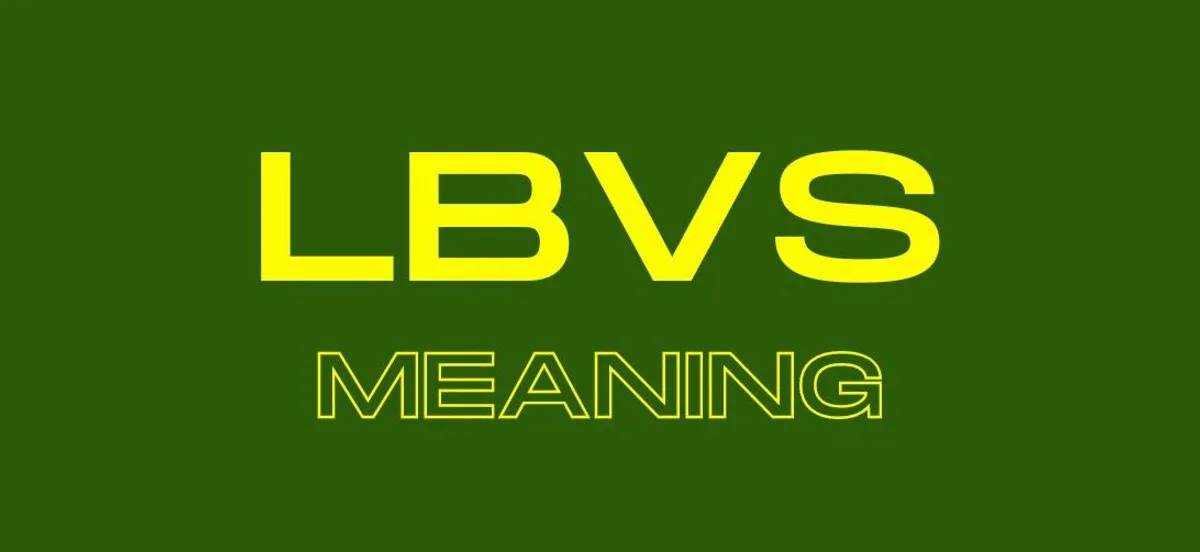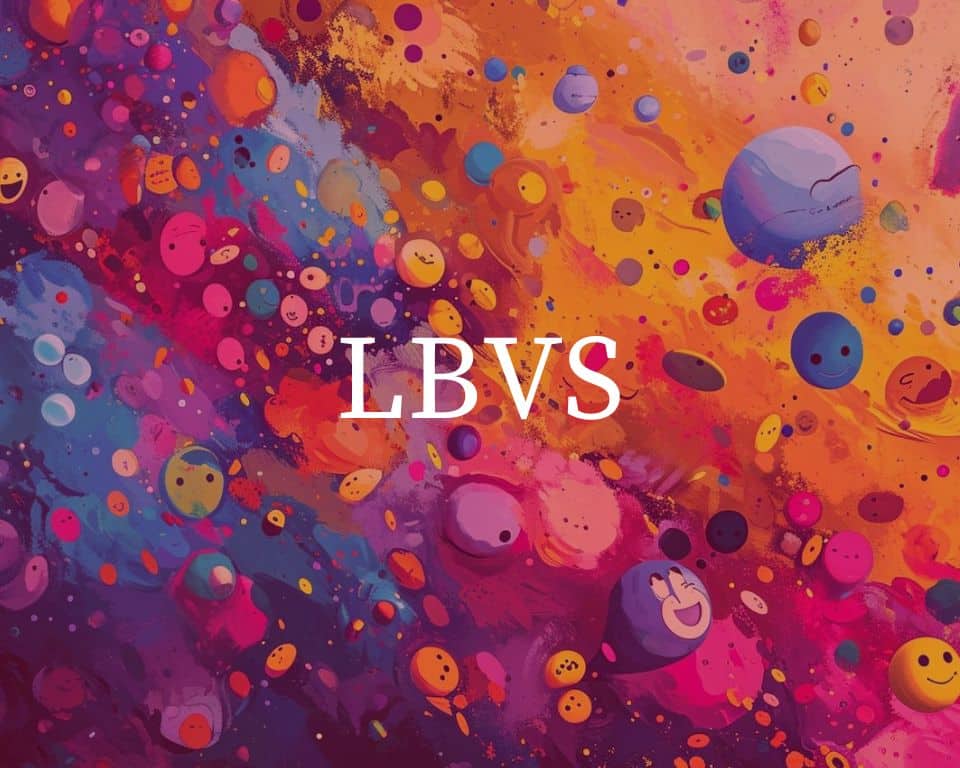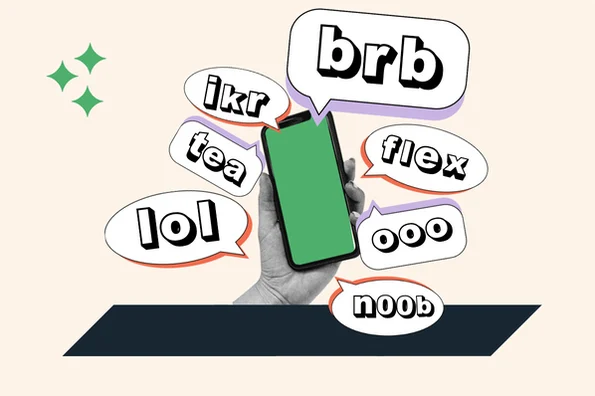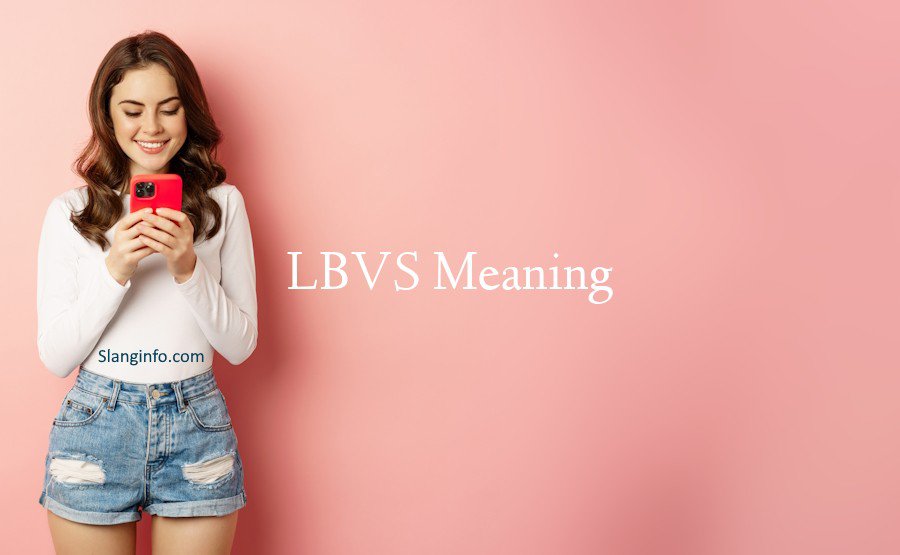The digital era has ushered in a new lexicon that is dynamic, concise, and reflective of the fast-paced nature of online communication. Internet slang comprises abbreviations, acronyms, and shorthand phrases that facilitate rapid and efficient text-based conversations. Such slang term as LBVS – Laughing But Very Serious, is an example.The proliferation of these terms is largely attributed to social media platforms and messaging apps where brevity is key, and traditional language takes a backseat to innovative and playful expressions.
The impact of social media on the evolution of language cannot be overstated. It has led to the creation of a modern patois that is continuously shaped by cultural trends, online communities, and even memes. This linguistic phenomenon simplifies complex feelings or situations into a few characters that pack a punch, often resonating with younger demographics who are most active in the digital landscape.

The Significance of Internet Slang in Digital Communication
| Term | Meaning | Comparison | Usage |
|---|---|---|---|
| LBVS | Laughing But Very Serious | Blends humor with sincerity | Casual & serious commentary |
| MK | Mmkay (Okay) | Less explicit than LBVS | Casual acknowledgment |
| TYT | Take Your Time | More relaxed than LBVS | Reassuring patience |
| FR | For Real | Similar sincerity to LBVS, no humor | Affirming truthfulness |
| TTM | Talk To Me | Invites open conversation | Approachable & inviting |
| ISTG | I Swear To God | More intense than LBVS | Frustration & emphasis |
| IHHT | I Hate How True | Shared reluctant agreement | Ironically truthful complaints |
| LMS | Like My Status | Different function than LBVS, seeks engagement | Call to action |
| IMU | I Miss You | Deep sentiment, unlike LBVS | Emotional expression |
| HYB | How You Been | Casual inquiry, unlike punchline LBVS | Conversational opener |
| FYP | For You Page | About content discovery, unlike LBVS | Online content trend indication |
| SMDH | Shaking My Damn Head | Shows irritation, unlike LBVS humor | Expressing frustration |
| BFFR | Best Friends For Real | Sincerity akin to LBVS | Deepening friendship bonds |
| IKYFL | I Know You’re Feeling Like | Relatability, surprise, unlike LBVS’s levity | Empathetic response |
| GRWM | Get Ready With Me | Different utility, content broadcasting | Sharing personal preparation |
| WTD | What To Do | Uncertainty, unlike LBVS humor | Seeking advice |
| OMM | On My Mama | Serious conviction, unlike LBVS humor | Solemn promise |
| OFC | Of Course | Clear agreement, contrasts LBVS duality | Unambiguous affirmation |
Decoding LBVS

The acronym LBVS stands for “Laughing But Very Serious” and is used to convey a mixture of amusement and sincerity. It is often employed when someone finds a situation funny but wants to affirm that their underlying message is genuine and should be taken seriously.
- Usage in text: “I can’t believe you ate my last slice of pizza, LBVS.”
- In social media comments: “They should definitely hire you for the comedy show, LBVS.”
Understanding internet slang such as LBVS allows for better navigation of digital dialogues, especially since these acronyms can carry nuanced tones that are not immediately apparent to those unfamiliar with such jargon.
Common Internet Slang Terms Similar to LBVS

MK Meaning
MK, short for “mmkay,” is an informal shorthand for “okay,” often used to acknowledge a message without expressing any strong emotion.
- It is less explicit than LBVS but still carries a connotation of casual agreement or passive reception.
- Like LBVS, MK simplifies communication by condensing the response into a succinct term.
TYT Meaning
TYT, or “Take Your Time,” is commonly used to express patience or to reassure someone that there is no rush.
- It presents a relaxed tone, contrasting with LBVS’s blend of humor and seriousness.
- TYT tends to diffuse urgency whereas LBVS might underscore a serious point amidst a light-hearted commentary.
FR Meaning
FR means “For Real,” and is used to stress sincerity or authenticity in a statement.
- It resonates with the serious aspect of LBVS, but without the laughter component.
- Both FR and LBVS can be used to affirm truthfulness, but LBVS has a dual layer of humor.
Broader Internet Acronyms and Abbreviations
TTM Meaning
TTM, “Talk To Me,” invites conversation and can be seen as a virtual open door for dialogue.
- It is often seen as an open, approachable term whereas LBVS places a specific frame on the conversation.
- TTM can complement LBVS when inviting someone into a candid, yet light-hearted discussion.
ISTG Meaning
ISTG, or “I Swear To God,” is a phrase expressing frustration or emphasis on one’s sincerity.
- ISTG intensifies the assurance component found in LBVS but does so in a more dramatic and sometimes exasperated tone.
- While LBVS mingles amusement with earnestness, ISTG is generally devoid of humor.
IHHT
IHHT, which stands for “I Hate How True,” conveys reluctant agreement with a statement or situation.
- This term shares the begrudging acknowledgment found in LBVS but lacks the laughter aspect.
- Both LBVS and IHHT can indicate a complaint that resonates as ironically truthful.
LMS Meaning
LMS, standing for “Like My Status,” is a direct call to action used on social media platforms.
- While LBVS involves a personal sentiment, LMS is utilized for engagement and approval within social networks.
- Its function is different from LBVS, as it is more about interaction than conveying an emotion or a point of view.
Expressing Feelings and Emotions Through Abbreviations
IMU Meaning
IMU stands for “I Miss You,” signifying a profound emotional expression often seen in more personal or close-knit digital exchanges.
- Contrasting the comedic essence of LBVS, IMU carries a depth of sentiment.
- Both are effective in their ability to convey genuine feelings, yet they operate at different ends of the emotional spectrum.
HYB Meaning
HYB, “How You Been,” is a casual inquiry into someone’s well-being.
- It is typically used as a conversational opener, akin to TTM, rather than the punchline-esque use of LBVS.
- LBVS and HYB both have casual undertones but differ in their use as HYB is more of a question than a statement.
FYP Meaning
FYP, “For You Page,” references the personalized content feed on TikTok, and by extension, has come to signify content that is trending or should be noticed.
- Can LBVS catch on like FYP has in surfacing trending conversations? It’s yet to be seen if LBVS will be echoed as a digital catchphrase.
- FYP and LBVS both reflect current digital narratives, though FYP is more about content discovery than personal expression.
SMDH Meaning
SMDH, “Shaking My Damn Head,” illustrates disdain or disagreement, often stemming from frustration or disbelief.
- It shares a similar role with LBVS in expressing reactions to situations, but SMDH lacks the lightheartedness associated with LBVS.
- LBVS versus SMDH is a contrast of combining amusement with truth against a more singular feeling of irritation or disapproval.
Internet Slang in Friendship and Relationships
BFFR Meaning
BFFR, “Best Friends For Real,” strengthens the bond and commitment within friendships.
- While LBVS is often used light-heartedly among friends, BFFR is a declaration of unshakable comradery.
- The sincerity in BFFR correlates with the genuine side of LBVS, highlighting the authentic emotions that internet slang can convey.
IKYFL Meaning
IKYFL, “I Know You’re Feeling Like,” is tailored to express empathy or shared understanding in response to someone’s experiences.
- It encompasses surprise and relatability, which differ from the laughing seriousness of LBVS.
- LBVS may articulate a personal viewpoint, while IKYFL extends this to connect with another’s feelings.
GRWM
GRWM, “Get Ready With Me,” is a content format that has gained traction as a means of sharing beauty routines or preparation for events.
- Unlike LBVS, which punctuates personal statements, GRWM is about inviting viewers into one’s own process or experience.
- The difference in utility between LBVS and GRWM is stark, as one serves conversational nuance and the other a form of lifestyle broadcasting.
Navigating Certainties and Speculations With Slang
WTD Meaning
WTD, “What To Do,” expresses uncertainty or a need for guidance in decision-making scenarios.
- LBVS may sometimes mask the seriousness of such indecision with humor, a different tactical approach compared to the straightforward nature of WTD.
- Both terms facilitate a crowd-sourced form of problem solving in digital communication, albeit with different emotional undertones.
OMM Meaning
OMM, “On My Mama,” is a phrase signifying a solemn promise or the truthfulness of a statement.
- The oath-like nature of OMM contrasts with the playful sincerity in LBVS.
- LBVS and OMM both underscore seriousness but OMM does so with a deeper personal conviction.
OFC Meaning
OFC translates to “Of Course,” and is an unwavering affirmation or agreement.
- Pitted against LBVS, OFC is unambiguous in its tone of wholehearted endorsement or acceptance without any comedic overlay.
- LBVS, while assertive, still preserves a dual tone that OFC forgoes in favor of clarity and certainty.
Conclusion
In summary, internet slang like LBVS (Laughing But Very Serious) and its counterparts play a fundamental role in expressing nuanced emotions and facilitating various types of interaction online. Understanding the meanings and contexts in which these abbreviations are used can greatly enhance communication in the digital world. Each term serves distinct conversational functions, from conveying heartfelt feelings with “IMU” (I Miss You) to inviting dialogue with “TTM” (Talk To Me), or asserting promises with “OMM” (On My Mama). As digital communication evolves, these slang terms continue to shape our language and how we connect with each other on social media and messaging platforms. Remember to familiarize yourself with the ever-growing digital vocabulary by exploring definitions like istg meaning, imu meaning, or ofc meaning to enrich your online exchanges.








11 thoughts on “LBVS Meaning”